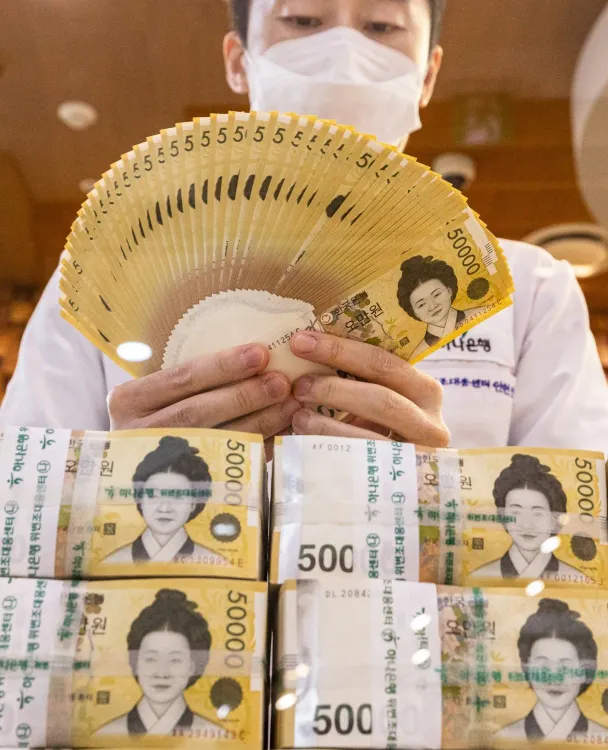Korean Currency Experiences Unprecedented Volatility Following Trump Tariff Shock

Synopsis
Key Takeaways
- South Korea's currency volatility peaked last week.
- Weekly fluctuation reached 67.6 won against the dollar.
- Local currency traded at 1,421 won.
- U.S. tariffs impact South Korea's economy.
- Exemptions for electronics provide some relief.
Seoul, April 13 (NationPress) Fluctuations in South Korea's foreign exchange market reached unprecedented levels last week, marking the highest volatility since the nation expanded its trading hours for the won–U.S. dollar market, according to data released on Sunday.
The weekly variation in the won–dollar exchange rate hit 67.6 won during the second week of April, the peak level since July 2024, when Seoul extended FX trading hours from a 3:30 p.m. close to 9 a.m.–2 a.m. the next day.
In comparison to records before the trading hour extension, last week's fluctuation represents the largest since the second week of November 2022, when the weekly fluctuation reached 101 won, as reported by Yonhap news agency.
The Korean won was trading at 1,421 against the U.S. dollar in after-hours trading on Friday, rising by 40 won from the previous week. This level represents the strongest rate since December 5.
The local currency dropped significantly below the 1,450-won threshold and has remained around this level since December, amidst increasing uncertainty due to U.S. tariff threats and a domestic political crisis ignited by then President Yoon Suk Yeol's unexpected declaration of martial law.
The recent market instability was influenced by U.S. President Donald Trump's decision to delay the implementation of reciprocal tariffs for 90 days while enforcing a baseline 10 percent tariff on imports from South Korea and other nations.
However, Washington raised tariffs on Chinese goods to 125 percent following Beijing's retaliatory actions, raising concerns over an intensifying global trade war and its repercussions on South Korea's export-oriented economy and the global market.
This hold on tariffs was announced shortly after reciprocal tariffs were set to take effect, as numerous countries attempted to negotiate agreements regarding new levies. In the previous week, the Trump administration introduced 25 percent tariffs on South Korea, 24 percent on Japan, and 20 percent on the European Union, among others.
In a related development, President Trump's administration has excluded smartphones, computers, and various other electronic devices from a broad set of reciprocal tariffs, providing relief to South Korea's Samsung Electronics Co., Apple Inc., and other international tech companies.
The U.S. Customs and Border Protection (CBP) released a notice on Saturday (U.S. time) declaring the exemption of select electronics, including smartphones, laptops, personal computers (PCs), servers, and semiconductor equipment, from the reciprocal tariffs, including the 125 percent duties imposed on Chinese imports.









